85 kg plastic waste removed from stomach of an abandoned bull
Activists claim such cases have become more frequent since the beef ban started, since there are no provisions for cattle once they become unproductive
Even as the state government ban on plastic bags gets into its initial stages of implementation, the menace of plastic waste continues to take a serious toll, especially on animals. Last month, a bull picked up by RESQ foundation from Pimpri- Chinchwad had 85 kg of plastic removed from its stomach.
While the animal was saved, activists claimed that such cases have been on the rise ever since the beef ban came into being, as there is no system in place to take care of cattle that are abandoned by farmers.
They immediately rescued him and brought him to their centre where he was operated upon on April 29. Apart from his unusually bloated stomach, Nandi could barely stand due to his back being bent with the load on his internal organs. Volunteers realised that a rumenotomy was needed and performed the surgery immediately. Within two-and-a-half hours, almost 85 kg of plastic waste was removed from his stomach, along with metal pieces including nails, screws, and glass.
Dr Chetan Vanjari, the veterinary surgeon who operated on Nandi, said, “We found that the plastic in his stomach had rolled into a ball which showed how old it was. It seemed that he had been eating plastic for the past 6 or 7 years. He couldn’t even breathe properly when we brought him here due to the pressure on his lungs. After we operated, he has recovered slowly and can now stand on his own.”

From top: The scar on Nandi after his operation, the bull recuperating at RESQ and the mound of plastic and metal recovered from his stomach
He added, “People still use plastic bags to dispose of food waste. Animals cannot differentiate between plastic and food and they swallow both after smelling the latter. The plastic sometimes comes out through waste, but if the animal has been eating it for a long time, it accumulates like in Nandi’s case.”
Activists also emphasised that such cases are on the rise since the beef ban came into place. They claimed that they are getting at least five such cases every month now. While the number of large animals they had treated in 2016 was 148, in 2017, they treated 246 abandoned cattle.
Fiyana Elavia, director of RESQ Charitable Trust, said, “Some 70 per cent of the cases that come to us have this problem and it has increased since the beef ban started. While the government has drafted a law banning slaughter, there is no policy about the aftermath. What is a poor farmer to do when his cattle become unproductive? With very few affordable centres for veterinary care and the massive cost of logistics to actually transport a large animal to a vet, cattle owners often abandon animals as a last resort, resulting in a steady incline in stray, homeless cattle on our streets. Garbage segregation and storage also needs to be improved to reduce this fatal condition of plastic blockage, along with affordable and feasible healthcare for large animals in our city.”
Admitting that the ministry is privy to such cases, minister for animal husbandry Mahadeo Jankar, however, claimed that the government has taken steps to providing the necessary assistance. He said, “We get such cases and treat them, too. Two similar cases were reported this year itself. Considering the situation, we have given funds of Rs 1 crore for cow shelters where farmers can send their cattle. We are also in process of launching animal hostels across the state and will be setting up mobile veterinary ambulances too.”
Meanwhile, Nandi has recovered and his appetite has returned. Volunteers are now trying to get him adopted once he is discharged from the centre. But, there is no guarantee that a similar fate will not befall him and his ilk.
Asserting that the government needs to rethink its policy, Raju Shetty, president of Swabhimani Shetkari Sanghatna, said, “The farmers’ economy is collapsing after the beef ban. Earlier, when an animal was of no use to them, they could sell it for at least 40 per cent of the cost. Now they cannot do so and also have to bear the cost of feeding the animals. This is not feasible for farmers and they end up abandoning cattle on the streets. The government needs to take a long, hard look at its policy.”
█ The farmers’ economy is collapsing after the beef ban. Earlier, they could sell an animal for 40 per cent of its cost. Now, they have to feed it, and end up abandoning cattle
— Raju Shetty, president, Swabhimani Shetkari Sanghatna
Even as the state government ban on plastic bags gets into its initial stages of implementation, the menace of plastic waste continues to take a serious toll, especially on animals. Last month, a bull picked up by RESQ foundation from Pimpri- Chinchwad had 85 kg of plastic removed from its stomach.
While the animal was saved, activists claimed that such cases have been on the rise ever since the beef ban came into being, as there is no system in place to take care of cattle that are abandoned by farmers.
The 7-year-old bull’s (christened Nandi) stomach was bloated beyond belief when volunteers saw him for the first time. They had received a call from an unknown person from Pimpri who saw Nandi alone and suffering on April 23.
They immediately rescued him and brought him to their centre where he was operated upon on April 29. Apart from his unusually bloated stomach, Nandi could barely stand due to his back being bent with the load on his internal organs. Volunteers realised that a rumenotomy was needed and performed the surgery immediately. Within two-and-a-half hours, almost 85 kg of plastic waste was removed from his stomach, along with metal pieces including nails, screws, and glass.
Dr Chetan Vanjari, the veterinary surgeon who operated on Nandi, said, “We found that the plastic in his stomach had rolled into a ball which showed how old it was. It seemed that he had been eating plastic for the past 6 or 7 years. He couldn’t even breathe properly when we brought him here due to the pressure on his lungs. After we operated, he has recovered slowly and can now stand on his own.”

From top: The scar on Nandi after his operation, the bull recuperating at RESQ and the mound of plastic and metal recovered from his stomach
He added, “People still use plastic bags to dispose of food waste. Animals cannot differentiate between plastic and food and they swallow both after smelling the latter. The plastic sometimes comes out through waste, but if the animal has been eating it for a long time, it accumulates like in Nandi’s case.”
Activists also emphasised that such cases are on the rise since the beef ban came into place. They claimed that they are getting at least five such cases every month now. While the number of large animals they had treated in 2016 was 148, in 2017, they treated 246 abandoned cattle.
Fiyana Elavia, director of RESQ Charitable Trust, said, “Some 70 per cent of the cases that come to us have this problem and it has increased since the beef ban started. While the government has drafted a law banning slaughter, there is no policy about the aftermath. What is a poor farmer to do when his cattle become unproductive? With very few affordable centres for veterinary care and the massive cost of logistics to actually transport a large animal to a vet, cattle owners often abandon animals as a last resort, resulting in a steady incline in stray, homeless cattle on our streets. Garbage segregation and storage also needs to be improved to reduce this fatal condition of plastic blockage, along with affordable and feasible healthcare for large animals in our city.”
Admitting that the ministry is privy to such cases, minister for animal husbandry Mahadeo Jankar, however, claimed that the government has taken steps to providing the necessary assistance. He said, “We get such cases and treat them, too. Two similar cases were reported this year itself. Considering the situation, we have given funds of Rs 1 crore for cow shelters where farmers can send their cattle. We are also in process of launching animal hostels across the state and will be setting up mobile veterinary ambulances too.”
Meanwhile, Nandi has recovered and his appetite has returned. Volunteers are now trying to get him adopted once he is discharged from the centre. But, there is no guarantee that a similar fate will not befall him and his ilk.
Asserting that the government needs to rethink its policy, Raju Shetty, president of Swabhimani Shetkari Sanghatna, said, “The farmers’ economy is collapsing after the beef ban. Earlier, when an animal was of no use to them, they could sell it for at least 40 per cent of the cost. Now they cannot do so and also have to bear the cost of feeding the animals. This is not feasible for farmers and they end up abandoning cattle on the streets. The government needs to take a long, hard look at its policy.”
█ The farmers’ economy is collapsing after the beef ban. Earlier, they could sell an animal for 40 per cent of its cost. Now, they have to feed it, and end up abandoning cattle
— Raju Shetty, president, Swabhimani Shetkari Sanghatna
You Might Also Like
GALLERIES View more photos















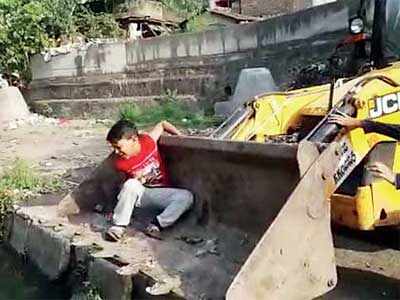
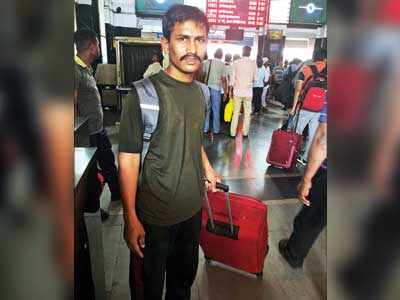
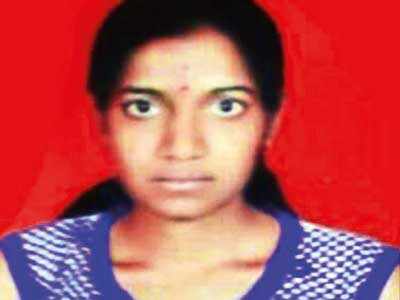
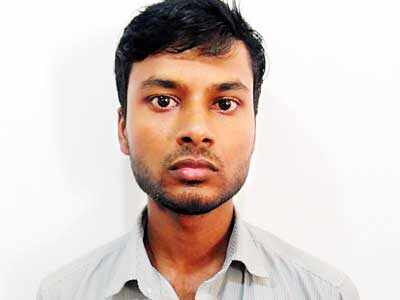
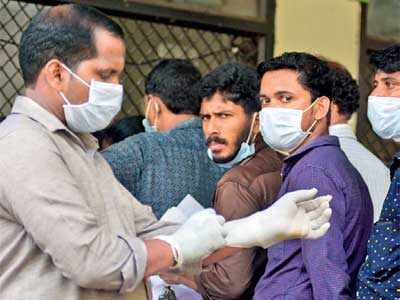
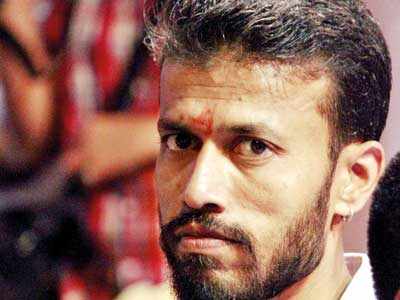
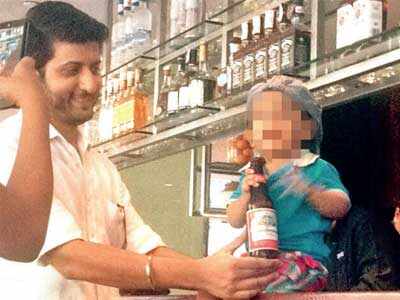

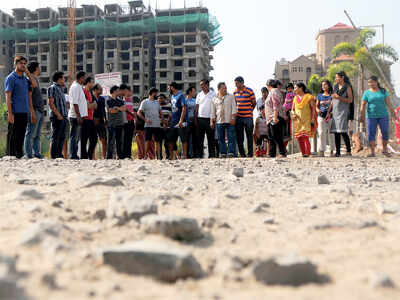
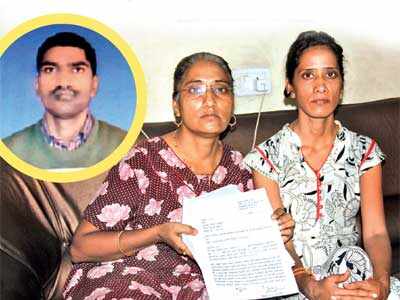
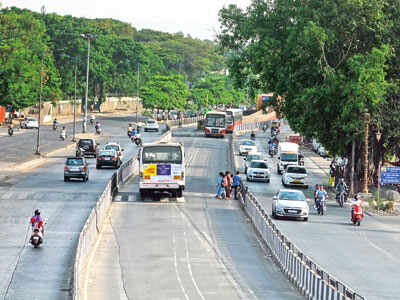

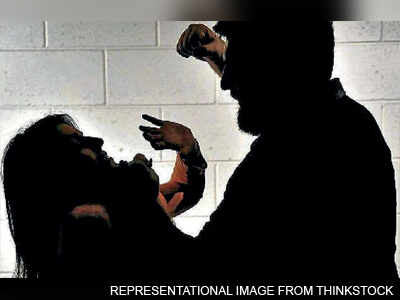
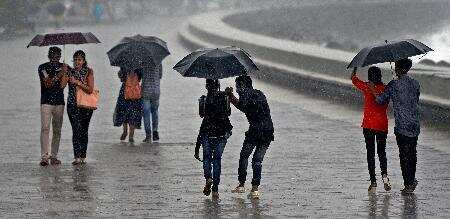
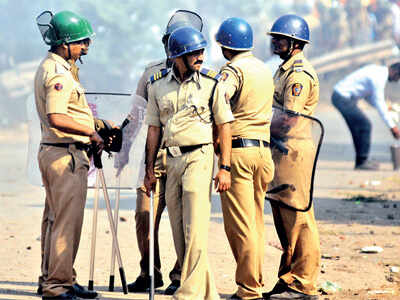
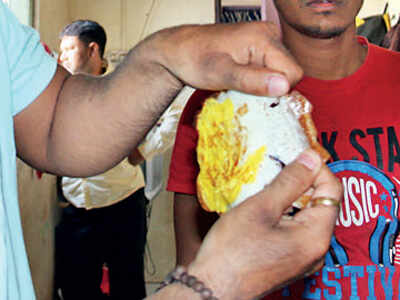

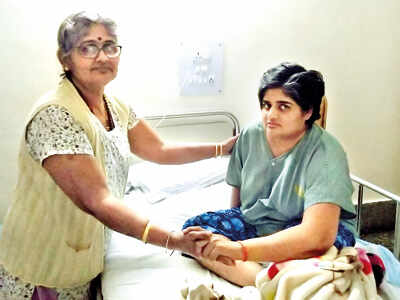

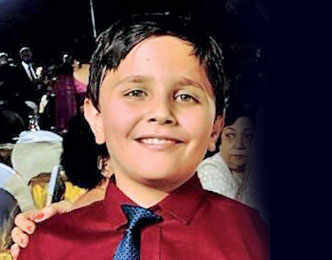
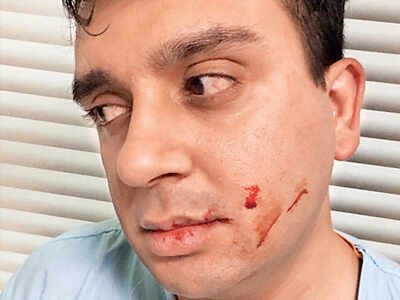
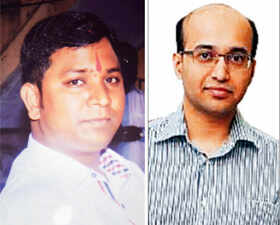
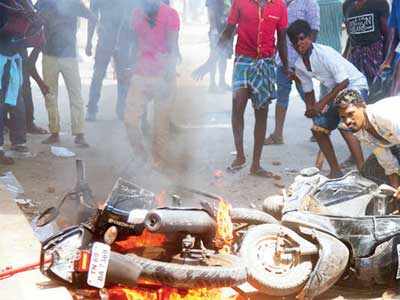
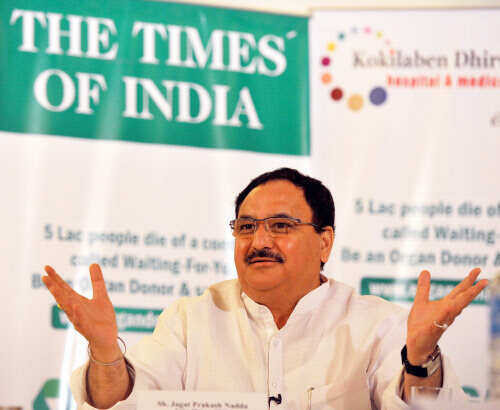
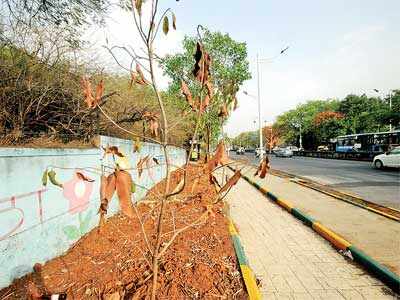

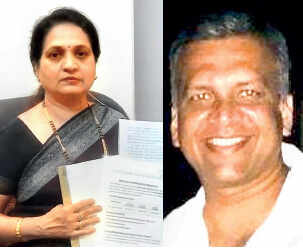

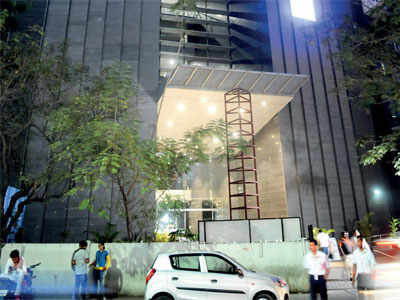
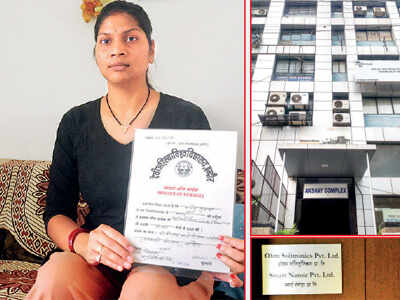
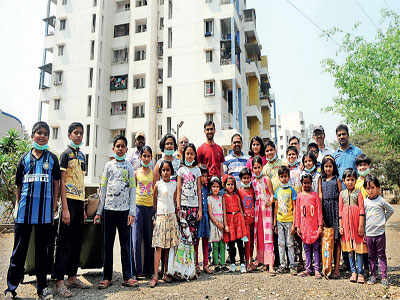
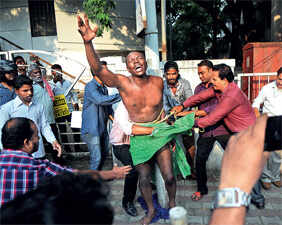
Recent Messages ()
Please rate before posting your Review
SIGN IN WITH
Refrain from posting comments that are obscene, defamatory or inflammatory, and do not indulge in personal attacks, name calling or inciting hatred against any community. Help us delete comments that do not follow these guidelines by marking them offensive. Let's work together to keep the conversation civil.